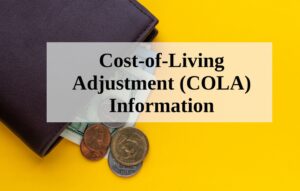
Frequently Asked Questions About Family Benefits
Navigating the world of senior benefits can bring up many specific questions, especially when family dynamics are involved. Here are answers to some common questions we hear from seniors and their families.
What exactly counts as “household income” when I apply for LIHEAP?
Household income is the total gross (pre-tax) income of every person living at your address who is part of your family unit. For seniors, this typically includes Social Security retirement benefits, Social Security Disability Insurance (SSDI), survivor benefits, and divorced spouse benefits. It also includes income from pensions, annuities, IRA withdrawals, part-time work, and any rental income you might have. It is important to report all sources accurately, as the eligibility thresholds are very specific.
I just became a widow. How do my Social Security survivor benefits affect my eligibility for utility assistance?
First, we are very sorry for your loss. Financially, this is a significant change. As a widow, you will likely receive a survivor benefit, which is a percentage of what your late spouse was receiving. While this provides crucial income, your total household income will be lower than when your spouse was alive. This reduction in income is the key factor. Many widows who did not qualify for LIHEAP as part of a couple find that they are eligible on their own. You should apply as soon as possible after your income from Social Security has been adjusted to the new survivor benefit amount.
Can I get help if I receive Social Security benefits based on my ex-spouse’s work record?
Yes, absolutely. If you were married for at least 10 years and are not currently married, you may be eligible for divorced spouse benefits. This money is part of your personal income. When you apply for LIHEAP or other assistance programs like SNAP, you must report this income. It will be counted toward the household income limit just like any other source of money. Being a divorced spouse does not disqualify you; your eligibility is based purely on whether your total income falls within your state’s guidelines.
What happens to my LIHEAP eligibility if my adult son moves in with me to help out?
This is a common family situation. When your adult son moves in, two things change for your LIHEAP application: your household size increases, and your total household income may increase. Your household size going from one to two will raise the income limit, which is helpful. However, if your son has a job, his income must be added to yours. You will need to calculate your new total household income and compare it to the new, higher income limit for a two-person household. It is possible that the added income could make you ineligible, so it’s important to do the math and report the change to the LIHEAP agency.
Where can I find the official rules and my local LIHEAP office?
The best place to start is online. You can find your local LIHEAP office and get state-specific information through the U.S. Department of Health and Human Services website or by calling the National Energy Assistance Referral hotline. For specific questions about your Social Security benefits, including survivor or spousal benefits, the most reliable source is the Social Security Administration itself. Visiting their website or calling their national helpline can provide you with personalized information based on your work record.
Disclaimer: This article provides general information for educational purposes only and is not intended as financial or legal advice. Family situations can be complex; consult with a qualified professional for advice tailored to your needs.











One Response
My wife and I living on fix income, trying our best to pay bills, I’ve been going 5 months now to cancer clinic in bham al keep trying to get appointment to northeast office for liheap, tell me there is no appointment available, just don’t feel right!!!!!